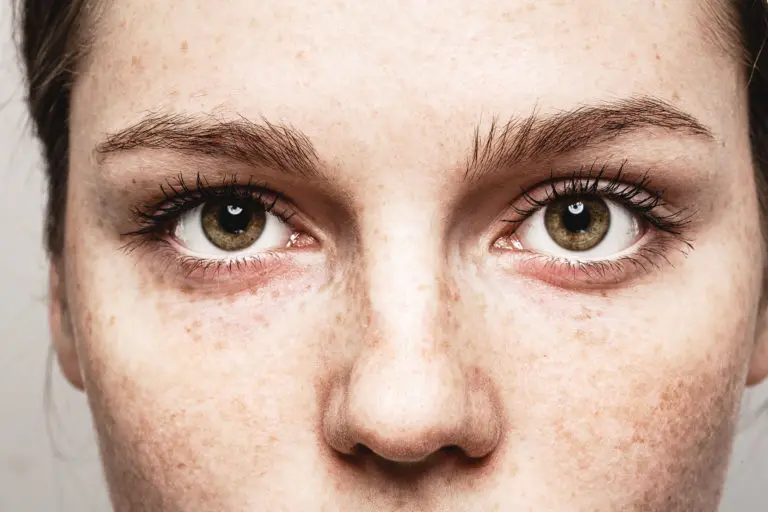What We Know About Blue Light and the Onset of Macular Degeneration
Scrolling through emails and social media feeds, spending longer hours working from home during the pandemic, and schools requiring children to work on tablets — these all raise red flags for our vision. While there is still a lot of research to be done around blue light and its long-term effects on our eyes, blue light has been shown to contribute to macular degeneration in animal research studies, which may suggest a link to this disease in humans as well. Macular Degeneration is an eye disease characterized by the loss of central vision, and is one of the leading causes of blindness in the US. Like it or not, there is mounting evidence that blue light can accelerate macular degeneration and lead to permanent vision loss. Here are a few facts to consider as you navigate our increasingly digital world.
Blue Light and the Retina
High energy blue light is only slightly less destructive than ultraviolet light, which causes skin cancer. Fortunately, the front of our eyes are excellent at protecting against UV light, however blue light passes straight through to the retina. These high energy waves cause oxidative damage to the retina which affects the photoreceptors and regulatory layers of the retina. This damage builds up over time and works in the same pathway as macular degeneration.
Uncertainty About Blue Light’s Effects
Although scientific evidence points to blue light as a contributor to macular degeneration, not all experts are certain. Some research indicates that blue light is only damaging when the light energy is three or more microwatts. By comparison, electronic devices usually emit no more than 1 microwatt. However, the cumulative effect of that 1 microwatt of blue light remains unknown, especially since we are now exposed all day long. Based on current evidence from studies done on animals and cell cultures, blue light kills retinal cells. We are currently in the study to determine how it affects human eyes, but we won’t know the answer for many years. By then it will be too late to do anything about it, as the damage is irreversible.
Impact on Young Eyes
The effect of blue light on children, teenagers and people in their twenties and thirties is notable, according to the American Macular Degeneration Foundation. Not only does blue light speed up age-related macular degeneration in older populations, but the onset of AMD in these younger groups may occur up to 10 years earlier, essentially doubling the potential of blindness over their lifespans.
Blue Light Protection Against Macular Degeneration
Regular exposure to blue light from smartphones, tablets, computer screens and other devices is nearly unavoidable. But we can set goals to decrease exposure to blue light. For the best chances of long-term eye health, the focus on eye protection should start at childhood. Limiting screen time for kids is an important step to keep young eyes healthy. Diet also plays an important role in eye health. Foods rich in Lutein and Zeaxanthin, such as bright-colored fruits and dark green vegetables, support macular pigments. Macular pigments block up to 80% of the blue light that tries to enter the retina. Think of them as nature’s protection!
Here Are Some Other Strategies
- 20/20/20 rule: Every 20 minutes, look at an object 20 feet away for 20 seconds. Following the 20/20/20 rule is a good start, but it’s important to note that this only helps alleviate eye strain and discomfort. It does not protect your vision from long-term exposure, nor does it protect your natural circadian rhythm.
- Filters and screen protectors: These accessories are available to minimize the amount of blue light our devices radiate. For example, Reticare (reticare.com) makes fantastic, affordable products that are backed by clinical research (use the code DRKARA for 10% off).
- Blue light glasses (the right type): With so many products available online, it’s very hard to know what works and what doesn’t. Blue-light blocking glasses are unregulated and can claim anything they want. While many likely offer some protection from high energy blue light, it’s hard to be sure, soit is advisable to use screen covers rather than glasses. Screen covers are easier to use, and they don’t get lost. Choose covers from companies such as Reticare and EyeSafe, who offer products backed by science. If you prefer to wear glasses, note that blue-light blocking lenses may protect your sleep and circadian rhythms if they are very yellow. If they are not yellow, they will not protect your sleep.
- Be sure to get regular comprehensive eye exams. Stay informed about your personal eye health by getting regular exams from a licensed eye doctor. During your appointments, talk to your doctor about strategies and tools that will help to keep your eyes healthy and your vision clear.
Bottom line: We may still need large clinical trials to study the effectiveness of blue light blocking approaches on the advancement of macular degeneration, but there are plenty of indications to show taking precautions can’t hurt. Age-related macular degeneration is a major health problem around the world and half of all blindness is a result of this condition. As the connection between blue light and AMD grows, there’s no harm in protecting your eyes.
References:
https://www.webmd.com/eye-health/macular-degeneration/age-related-macular-degeneration-overview#1
http://www.bluelightexposed.com/macular-degeneration
https://www.webmd.com/eye-health/blue-light-health#1
https://pubmed.ncbi.nlm.nih.gov/9022098/
https://www.tmc.edu/news/2020/01/debunking-blue-light-glasses-claims-to-focus-on-proven-eye-issues/



